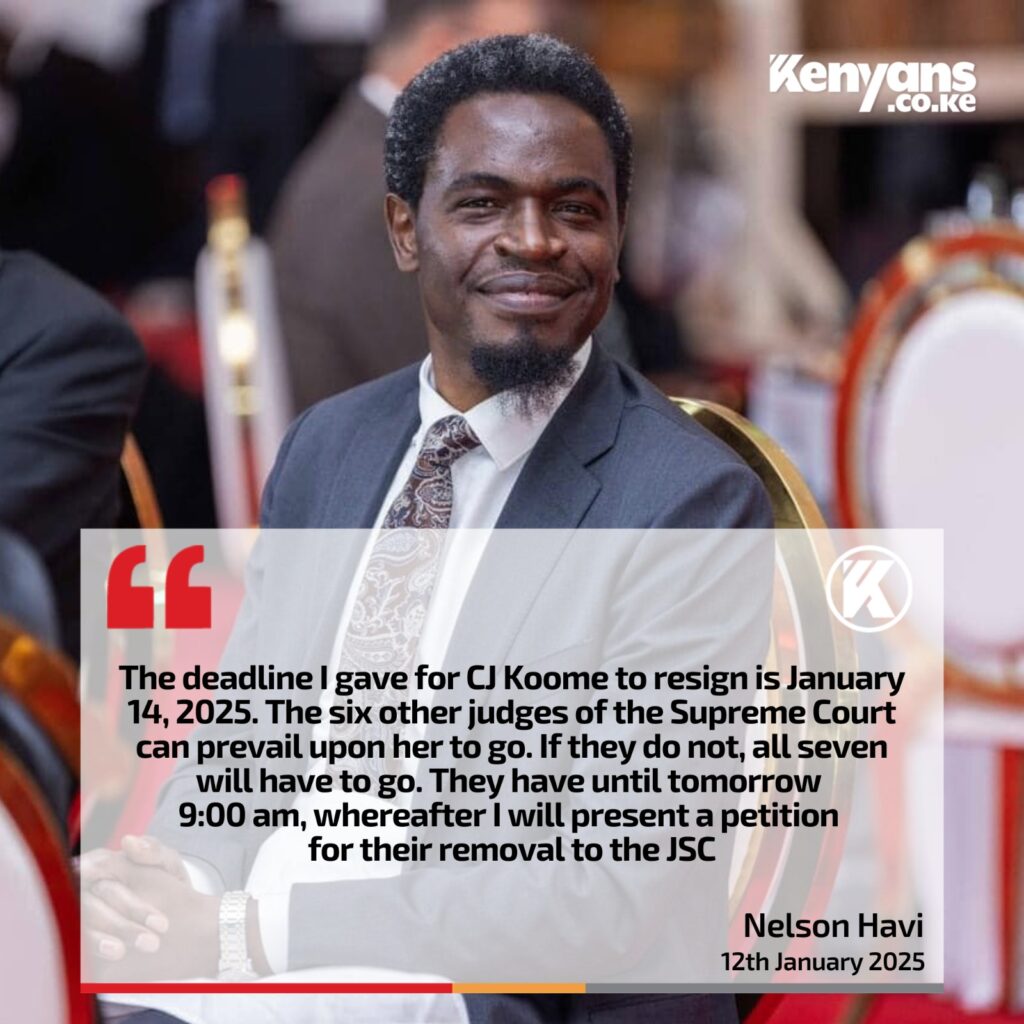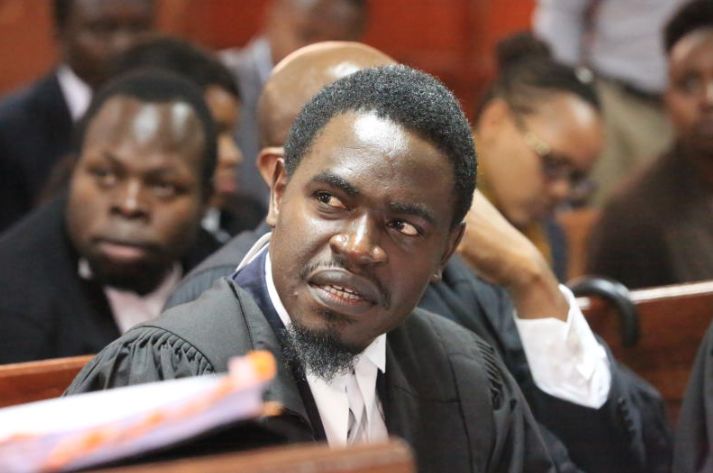Former Law Society of Kenya (LSK) President Nelson Havi has called for Chief Justice Martha Koome to resign by January 14, 2025, citing corruption and incompetence within the judiciary.
He has urged the six other Supreme Court judges to support this call, warning that if they do not, he will file a petition with the Judicial Service Commission (JSC) on January 13, 2025, seeking the removal of all seven judges.
Havi and other senior lawyers, including Dr. Gibson Kamau Kuria, Paul Muite, and Ahmednasir Abdullahi, have accused the judiciary of corruption, claiming that some judges issue fake court orders, leading to illegal evictions and undermining the rule of law.
They also allege that judges have been absent from important court sessions without valid reasons.
In response, Chief Justice Koome has invited concerned parties to discuss these issues and has initiated investigations into the allegations.
She has also forwarded complaints to relevant authorities for further investigation.
Havi has denied having a personal vendetta against Chief Justice Koome, stating that his concerns are about her tolerance for corruption within the judiciary.

He has called for regular vetting of judges and magistrates to enhance accountability.
The situation has led to divisions within the judiciary, with some Supreme Court judges reportedly eyeing the Chief Justice’s position.
There are also allegations of tribalism, with claims that Chief Justice Koome has favored individuals from her native Meru community in appointments.
The judiciary has recently faced scrutiny, with senior lawyers, including Havi, calling for Chief Justice Koome’s resignation and a comprehensive overhaul of judges over allegations of corruption and misconduct.
The Chief Justice has also faced criticism for her stance on the doctrine of decisional independence, which some argue has been used to shield judicial officers from accountability.
Havi and others contend that this doctrine has allowed corruption to flourish within the judiciary.
The situation remains tense, with the judiciary under increased scrutiny and calls for reform growing louder.
The coming days will be crucial in determining the future of Kenya’s judicial leadership and its commitment to upholding the rule of law.





















Add Comment